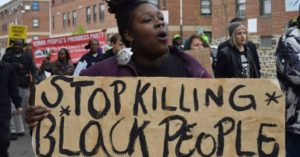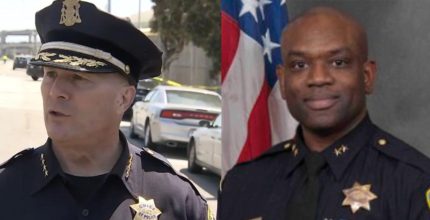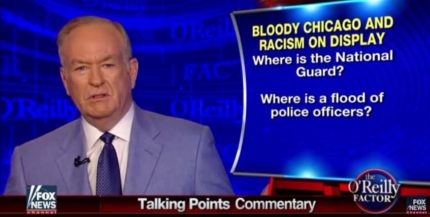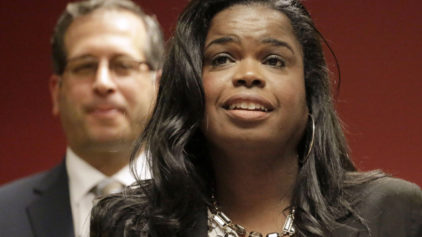
Baltimore protesters demanding “Justice for Freddie Gray.” (Photo courtesy of Ryan Harvey)
On Monday, the president of one of the nation’s largest police organizations apologized for the historical racial abuse and mistreatment of African-Americans, deeming it a “dark side of our shared history” that needed to be acknowledged.
For some, the apology was spot on. But for many Black activists, the police chief’s words just didn’t go far enough.
Terrence Cunningham, president of the International Association of Chiefs of Police, took the stage at the group’s yearly conference to assert that police have historically been the face of oppression and discrimination in communities of color. According to CBS News, Cunningham also stated that police have long enforced laws that promote legal discrimination and violate the basic rights of Black citizens.
“While we obviously cannot change the past, it is clear that we must change the future,” he said. “We must forge a path that allows us to move beyond our history and identify common solutions to better protect our communities.”
“For our part, the first step in this process is for law enforcement and the [International Association of Chiefs of Police] to acknowledge and apologize for the actions of the past and the role that our profession has played in society’s historical mistreatment of communities of color,” Cunningham added.

International Association of Chiefs of Police president Terrence Cunningham. Photo courtesy of WELLESLEY POLICE DEPARTMENT.
While the police chief’s bold apology addressed past racial discrimination on the part of law enforcement, leaders of the Black Lives Matter movement and other notable Black activists have remained less than enthusiastic. Cunningham’s remarks come at a time when cities like Ferguson, Missouri; Baton Rouge, Louisiana; and St. Paul, Minnesota are still grappling with the after-effects of police violence against Black men. So right now, activists say they only want to see justice and actual policing reforms — not an apology.
“The problem is that police continue to enforce racist and discriminatory laws and policies,” said Constance Malcolm, whose 18-year-old son, Ramarley Graham, was shot dead by a cop in his Bronx home in 2012, the New York Daily News reports.
“They continue to abuse us every day and they are never held accountable,” Malcolm added. “Until we see officers doing real jail time for murdering and abusing Black and brown people, and real changes in the way the police treat us, this kind of statement is meaningless.”
Black Lives Matter activist and Campaign Zero co-founder DeRay Mckesson said he hoped to see Cunningham’s apology backed up by deep, structural changes to policing and America’s criminal justice system, according to the Associated Press.
National director for the Chicago-based Black Youth Project 100, Charlene Carruthers, also weighed in, saying the police chief’s apology doesn’t go far enough. Carruthers said one way to begin solving the issue is to strip law enforcement agencies of their financial resources and directing funds back into community programs.
Some activists — including those who’ve been directly affected by police violence — thought Cunningham’s apology came a bit too late, but acknowledged it was a small step in the right direction.
“It’s a good thing that at this time it’s being acknowledged,” said Nicole Paultre Bell, whose fianceé, Sean Bell, was shot to death by police as he left his bachelor party in 2006. “I only wish it had been done way sooner. Many people have lost their lives. And now [Cunningham] has acknowledged that there is a problem.”
Earl Ward, attorney for the family of Tamir Rice, said such an apology coming from a prominent police group “speaks volumes.” However, Ward acknowledged that a lot more needs to be done in order to spur actual change in police culture.
“I don’t really think it has much of an impact in terms of change,” he said. “It’s an important step, but I don’t see it changing the police culture.”


